

2022-08-13 12:00:00 AM | 1203 ![]() Print
Print ![]() PDF
PDF
This write-up is based on my case study (personal experience) with the newly released Google Ads Performance Max Campaign setup that was introduced into the Google Ads manager dashboard for launching advertisements across all Google's ads network platforms. Performance Max is a new goal-based campaign type that allows performance advertisers to access all of their Google Ads inventory from a single campaign.
![]()
One thing I did like to say that strike out from this Google Ads Campaign type is that it does not rely on Ads Group unlike other Google campaign setups, and another thing with the performance max is that it takes goals as high priority and one of the best use of this metrics is to measure "conversions" based on trigger events that are basically set up using your Google global tags.
Not to divert too much I will be taking you through how I set up my Google Ads Performance Max campaigns to measure conversions and for me to have a full view of the cost of every conversion I got from the campaign itself.
Step 1.) You will need to select the objectives you want then select the type of campaign you will like to have but must have set up conversion goals for your objectives. This can either be a form submission conversion goal (for form submission or signups and shop cart checkouts) or a Lead phone call vis the extension ads settings (adding your phone number on your ads for leads to call).
I strongly advise the use of this particular option as a secondary conversion goal so as to not have your bid strategy cost charge you for each lead call, as it will take it will be recorded as a conversion. The form submission is far better and should be used as your default for any future setup or campaign launch (by default).
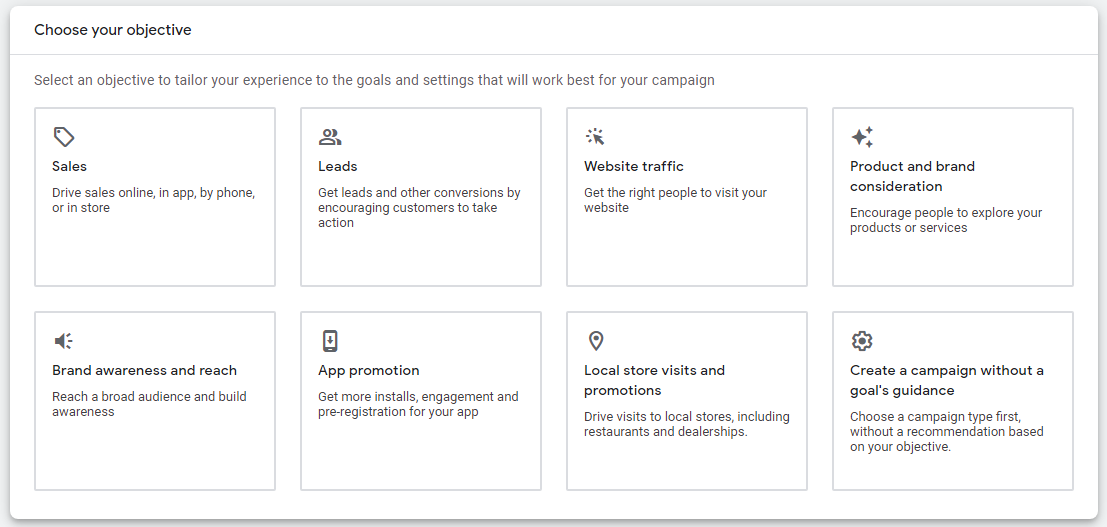
Step 2.) You will need to follow all highlights and directions that are being auto setup for you during the Asset library stage where you are to upload images, logos, videos, headlines, long headlines, descriptions, and URL extensions for your URL display on your ads. Now because you are creating a single ad that will be displayed across all Google ad formats and networks with platforms you will need to be very constructive to avoid duplicate and try to utilize all image size formats ie square, landscape, and portrait.
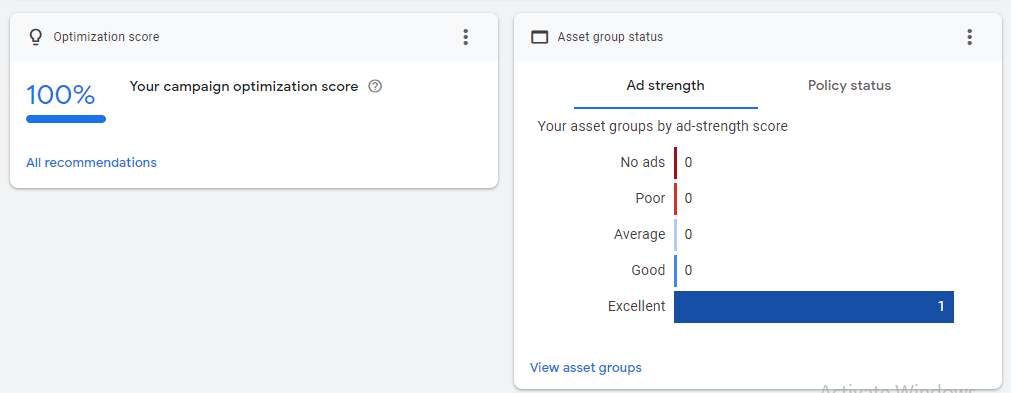
The use of videos is very constructive and necessary if you will want to have a 100% optimization score for your ads, two videos are enough to gain this mark, the mix of the square and portrait with landscape sizes of your banner images is also key to attaining an excellence Ads strength for your campaign setup.
Step 3.) The other step you really need to focus on is setting up your conversion tracking on your website, especially for it to trigger and for your ads campaign to be able to record such hits on your website. In my case we had a landing page for our campaign where we need to measure the number of people that actually submit our lead form whilst we will be able to get more concise data about our campaign direction in terms of these following metrics, we measure from the campaign, conversion, cost, cost/conversion and conversion rate we also have other data values we cannot ignore which is the total impression we got from the campaign.
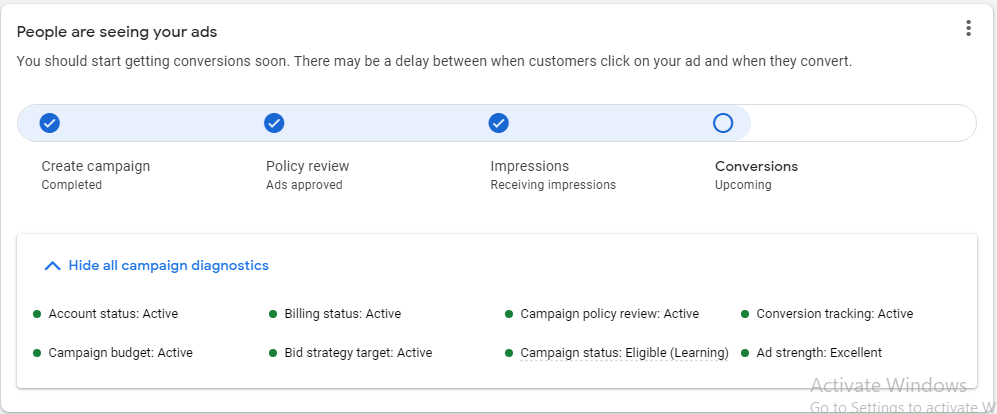
One of the challenges we had was setting up the conversion tracking goal to actually connect and function correctly to receive data from our landing page, we had to use Tag Assitance after deploying the Google campaign tag for tracking conversion into our Google tag manager. You will be provided with the steps, all you have to do is to have the Tag assistance extension installed on your chrome browser and finish up by testing the configuration is working...you might have errors of it not getting results from your website (general domain instead of your landing page. To solve this simply use the Google Tag manager if that is what you have used to install your Google Property for your website and include the Google Ads Campaign tags for tracking your conversion, you can also use the same method to include Google remarketing tag...this is done via your Google analytic Admin set up page).
When all is configured correctly you should have all your campaign diagnostics showing green like the image above, it might take a while prior to your conversion tracking to start getting data passed to your dashboard, due to the fact that it takes an approximation of 7 days for your campaign to move from bid strategy learning (thanks to Google's AI algorithm responsible for delivering optimized campaign ads to the right audience at lower bid price based on your ads overall performance) to actually start serving your optimized version of the campaign.
Step 4.) This step that most people do omit that is linking your Google analytic account to your Google AdWords campaign so that you can have retargeting marketing measurements and data-driven metrics that are more concise with your goals that have been set up from your analytics dashboard, for instance, our goal is to measure how many people actually land on our thank you page from the landing page.
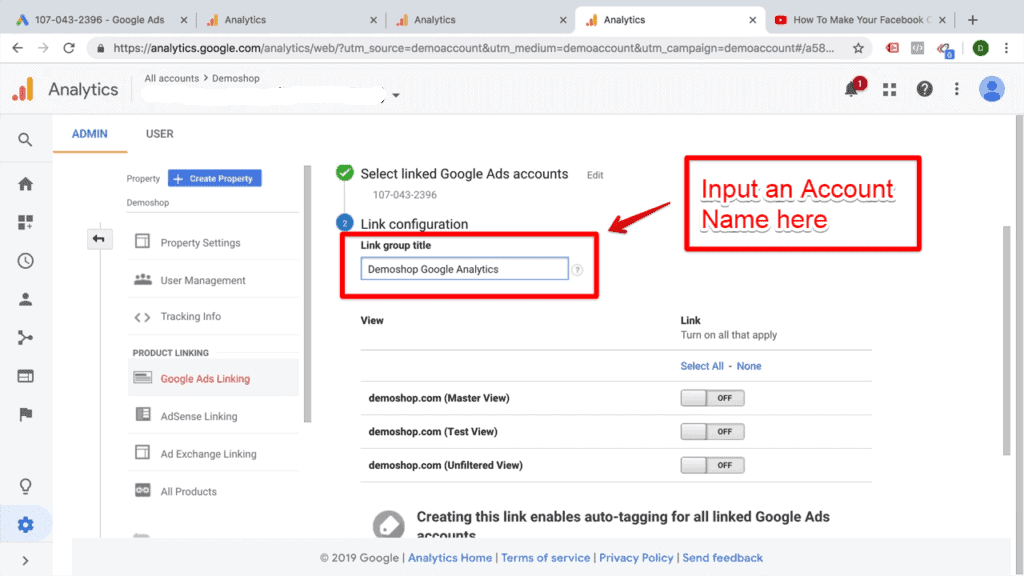
Already we have a measurement for the landing page and also a conversion tracking to measure every button submission clicked, so having another goal measurement for the final landing page that handles their data submission is also a prerequisite to our campaign data.
Step 5.) There is one of the things that actually make the Google Ads Performance Max stand out is the ability to actually schedule your ads to run. This helps you to manage your campaign budget by targeting when your audience is most engaged online, you can only get this if you have done lots of campaigns and also have a good understanding of reading website performance via Google analytics.
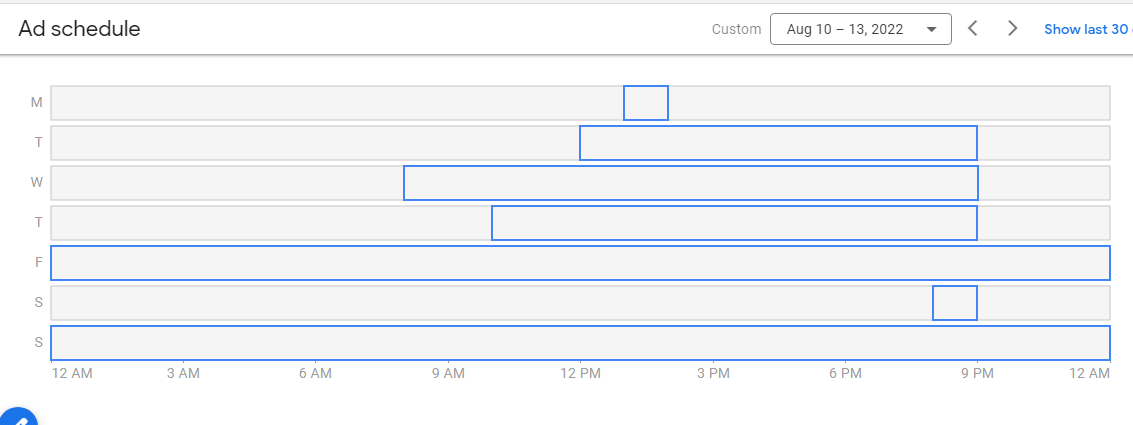
This is similar to the post I wrote on What is the Best Time To Post On Social Media which is based on both Facebook and Google analytic time frames of high peak engagement on our website from social media traffic. It was based on this case study that I actually adjusted the time frame based on daily performance on our website over 60 days of interaction.
You should use this page on your Campaign page to set up the best time or not the best time you can actually save money, as ads cost are getting more expensive due to the decline in disposable income of most online leads...it is becoming a tough crowd to target and it's a general fact that the world's economy is not very pleasant at the moment. This has thrown some shades on advertising for sales and has made the use of inbound marketing more of an improvised means to stay afloat. Why do we have a website traffic target goal and a conversion metric to measure our ads cost per conversion while we work on our inbound marketing with the use of email and tell marketing to further convert our prospects into paying leads?
These are the steps I can encourage anyone that will like to set up or launch a Google ads performance max campaign to follow and try to configure to get the same result as I have with their campaign strength and optimization score of 100%.
One thing that I can tell you is these, when compared with smart ads campaign I can tell you that the performance max outperforms the smart ads campaign in terms of click-through rate and even in impressions based on similar cost and it has a lower click rate compared to the smart campaign ads.
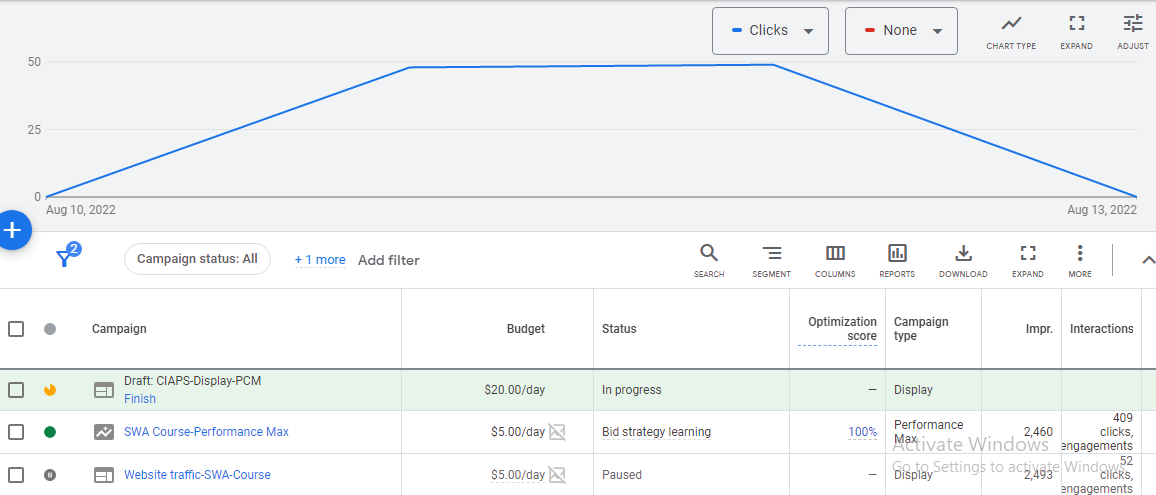
The image above showcases the difference in results being presented by using a good setup Google performance ads max with respect to using a smart campaign ad. Though both have their merits against the other, for now, I will take the Performance Max as a better outreach medium to actually optimize your dollar when set up correctly as explained above.
The only drawback being the issue of longer duration for approval, which can take up to 2 weeks for the Learning eligibility to complete your ads approvals and start serving your ads...when you first launch your performance max campaign on Google, you will notice it will start delivering..this is only to help optimize your daily budget with your campaign goal. See this as a testing or experiment stage of your ads approvals process.
I will also advise you never push your campaign on a string budget of $5 per day, if you want to have your ads to deliver using a Google performance max ads campaign, you need to setup a minimum of $20 which to me is more better and you also need to have your campaign run for a minimum of a month or two for you to start seeing much better return on your ads performance.
Why you can't use $5 daily budget for a Google Performance Max ads is simple... you're placing ads across all Google's ad's network platform and channels and it's going to be based on auction bid and your ads performance. If you don't have enough dollar to bid for a placement on a display ads or search then you will notice poor traffic or low clicks on your ads, so it's much better you kick off your ads daily budget on a $20 daily budget and then move it up based on your campaign goals results.
eg if you place a campaign goal for conversion (form submission) and within your budget you have a 10 conversion recorded with a low cost/conversion...you can tell that the more you have conversion the less you pay hence the cost of the campaign reduces, which should encourage you to increase your daily budget for more impression impact and clicks on your ads.

I am a seo web analyst and have a love for anything online marketing. Have been able to perform researches using the built up internet marketing tool; seo web analyst as a case study and will be using the web marketing tool (platform).
How To Fix Cloudflare Error 522 Connection Timed Out
How To Optimize Cache Performance via HTACCESS Apache Server
How To Fix GA4 Showing Wrong Domain Traffic
How To Reactivate Google Adsense Account
How Do You Write Pitch Deck That Wins Investors
Effective Lead Magnet Funnel Examples For Businesses
How To Promote FMCG Products Using Digital Marketing
The Main Objectives Of SEO in Digital Marketing
How Artificial Intelligence Is Transforming Digital Marketing
Google CEO Sundar Pichai: Search will profoundly change in 2025